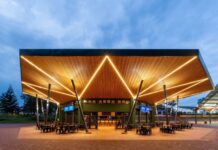Initiated by Italy with Food and Agriculture Organization (FAO) and United Nations Development Programme (UNDP) support, the center has a special focus on Climate Smart Agriculture, access to water, rural women and youth
A major focus on boosting the agricultural sectors and promoting rural development in Africa is needed to ensure a better future for the continent’s youth who, if given the chance, can be the drivers of development, FAO Director-General José Graziano da Silva said today at the inauguration of the Africa Centre for Climate and Sustainable Development.
“It will not be possible to modernize African agriculture if we do not stimulate rural youth with options other than migration,” he said. “We need young people in rural areas, we need rural development, and we can’t have that without facing the challenges of climate change,” he added.
He also emphasized that global hunger rates are rising in various parts of Africa.. “If we don’t step up our actions in the Sahel we will not achieve the Sustainable Development Agenda and the Zero Hunger goal by 2030,” he said.
The Africa Centre for Climate and Sustainable Development, was established by the Italian government in partnership with the United Nations Development Programme (UNDP) and FAO. It will facilitate much-needed exchange of information and coordination to increase efficiencies and build synergies across Africa, develop and scale-up innovative solutions for sustainable development and implement the goals of the 2030 Agenda and Paris Climate Agreement.
Sustainable development in Africa “is a pillar of Italy’s foreign policy” and shared challenges ranging from security, migration and climate change represent a “common destiny,” Prime Minister Giuseppe Conte of Italy said at the ribbon-cutting ceremony for the new center, which he said will initially focus on the Sahel region.
Achim Steiner, UNDP Administrator, noted the new center was conceived thanks to an Italian initiative at the meeting of G7 environment ministers in Bologna in 2017 and offers a “practical foundation” for speeding up responses to the known challenges of the future.
“We are entering a century when Africa’s own development will increasingly determine the development of the world economy,” he said.
Today, sub-Saharan Africa is the region with the highest prevalence of undernutrition – and farm yields are far below those obtained elsewhere. There are a host of reasons, such as infrastructure deficits and the lack of access to markets and credit. Conflict and climate change are also having a strong impact on vulnerable rural populations.
About the Center
The Africa Center for Climate and Sustainable Development is a response to recognition at the G7 summit of the need for a center dedicated to the promotion of sustainable development, with a special interest in initiatives linked to climate, Climate-Smart Agriculture, access to water, clean energy generation, gender equality.
The Center has identified communication and support initiatives linked to accessing international funds, identifying and evaluating projects and enhancing the involvement of resources from the private sector in programmes as core functions.
Several ministers from African countries attended the inauguration and participated – along with Cardinal Peter Turkson, prefect of the Vatican’s Dicastery for the Promotion of Integral Human Development, and Ibrahim Thiaw, the UN Seceretary General’s Special Adviser for the Sahel – in a round-table discussion. This explored how the Center can contribute to Africa’s needs and how G7 countries can steer their cooperation to contrast environmental degradation and promote sustainable economic growth in the region.
The Italian government has set up a trust fund for the Center, and one of its first tasks has been to support initiatives promoted by the United Nations Secretary General for sustainable development in the Sahel region.
FAO is helping many member states develop national plans to strengthen rural livelihoods and inclusive governance schemes that benefit family farmers and will provide expertise on food security and sustainable and climate-resilient agriculture.

















